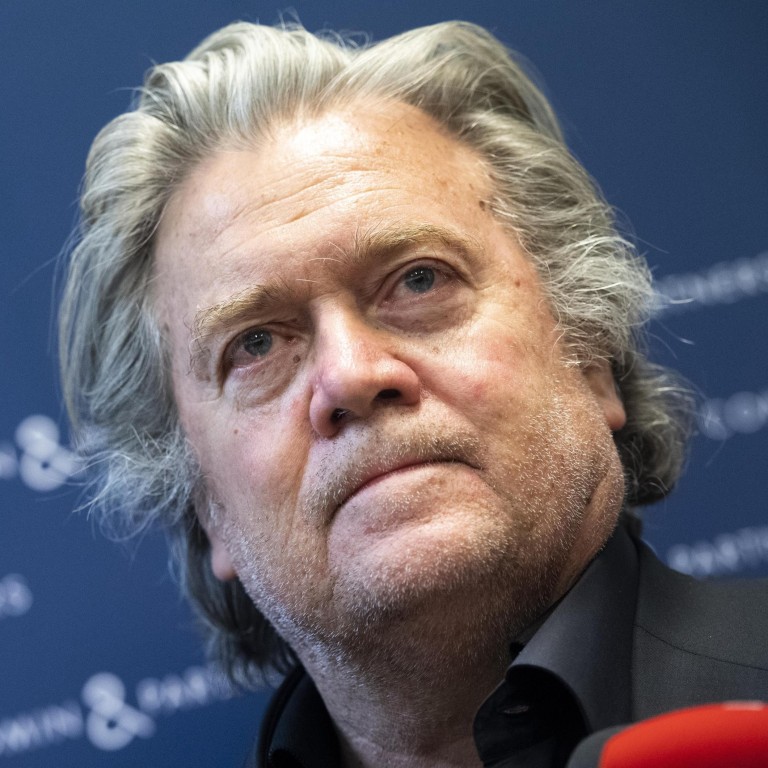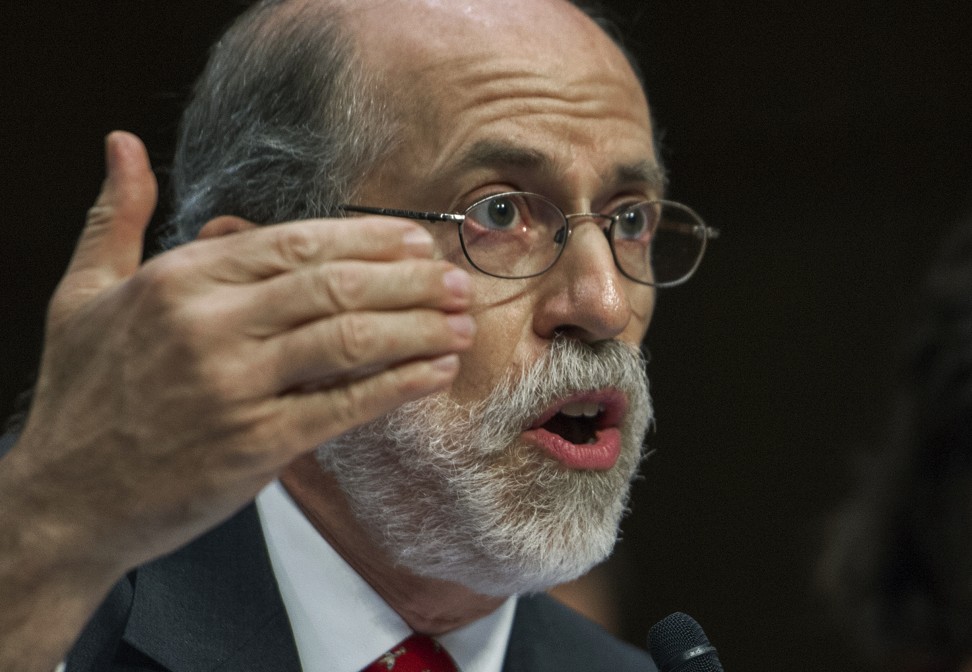
Cold war is back: Steve Bannon helps revive US committee to target ‘aggressive totalitarian foe’ China
- Former White House strategist among founders of a new version of group whose past incarnations focused on the Soviet Union
- Members say China poses ‘existential and ideological threat to the United States and the idea of freedom’
A group of Washington policy advisers and former US government officials including Steve Bannon have revived a cold war-era advocacy organisation to take aim at China, which it called “an aggressive totalitarian foe”.
The Committee on the Present Danger: China, or CPDC, will be launched to facilitate “public education and advocacy against the full array of conventional and non-conventional dangers” posed by the ruling Chinese Communist Party, the group said in an announcement on Monday.
The committee’s latest iteration underscores the growth of opposition to Beijing in Washington’s policymaking circles, which has helped to fuel a bilateral tariff war started by US President Donald Trump last year and a new law that will tighten oversight of Chinese investments in the United States.
The Committee on the Present Danger (CPD) was first established in the early 1950s as a bulwark against the influence of communism in the US. The group disbanded after some leading members were drafted into the administration of Dwight Eisenhower, but in 1976 was reformed by US foreign policy hawks to counter the Soviet Union during the cold war.
“As with the Soviet Union in the past, communist China represents an existential and ideological threat to the United States and to the idea of freedom – one that requires a new American consensus regarding the policies and priorities required to defeat this threat,” the committee’s announcement said.
The group’s vice-chairman Frank Gaffney, a defence adviser to former president Ronald Reagan, said the committee hoped to “set the stage for a series of national debates about China” to address the threats the country posed. Gaffney has spent much of his time since leaving government in the 1980s propagating stridently anti-Islamic views.
Even if Beijing faithfully kept its commitments under a trade agreement that Washington is trying to negotiate with China, the US would still face serious threats in other areas and must address those, Gaffney said.
“China’s arsenal for global supremacy includes economic, informational, political and military warfare,” read a statement by James Fanell, a former US Navy intelligence official focusing on Pacific security affairs. The US “has witnessed already China’s expansion into the vacuum of a diminishing US presence in East Asia”, he said.
Fanell argued that Washington needed to regain a military deterrence position in the Indo-Pacific. “We already have slipped,” he said. “If we fall any further, we may not recover.”
Sasha Gong, also a member of the new CPD, said China was “waging an ideological war” against the US, which was “losing ground” and should consider it “as urgent as military defence”.
“We are disarming ourselves; meanwhile Chinese are taking our ground, broadcasting here, taking our people and winning hearts and minds,” said Gong, adding that the US’ response to China’s aggression was “very inadequate”.
In a faxed reply to the South China Morning Post, China’s Ministry of Foreign Affairs said that it had not heard about the organisation and that it was a “dead end” to revisit the cold war-era zero-sum mindset.
“We have repeatedly stated our stances with regard to the ‘China threat’ cliché,” the ministry said.
“We hope some people in the United States view China’s development in proper perspective, stop groundless accusations and defamation against China, and instead, be more engaged in deeds that would benefit China-US relations, the peace, stability and prosperity of the world,” the ministry said.
Although the committee boasts a roster of China experts, it also features a number of US public figures not known primarily as authorities on the country’s affairs.
The CPD gained notoriety in its first iteration when it issued NSC 68, a policy directive that called on Congress to triple the US defence budget to counter the Soviet Union’s expansion, according to a 2004 report by US political newspaper The Hill.
The second CPD was formed in 1976 by hawks from the Democratic and Republican parties who believed that “detente [had] lulled everybody into complacency”, The Hill quoted Yale University cold war scholar John Gaddis as saying.
The report described that CPD’s members as the original “neoconservatives” – former liberals who became disillusioned with the Democratic Party during the Jimmy Carter administration and advocated that the US initiate an arms build-up.
Additional reporting by Owen Churchill, Robert Delaney and Laura Zhou


